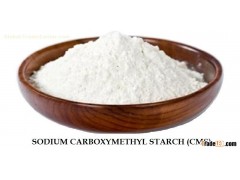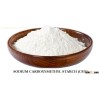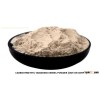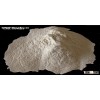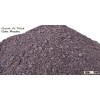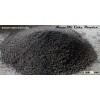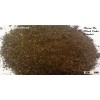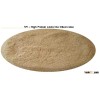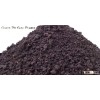SODIUM CARBOXYMETHYL STARCH (CMS or SCMS) is a starch ether derivative derived from starch. It is soluble in water at room temperature and forms a transparent to light milky and viscous solution.
CMS is an important modified starch with unique properties due to the presence of negatively charged functional group (CH2COO-). The introduction of carboxymethyl groups interrupts the ordered structure of native starch and intervenes with the re-association of gelatinized starch. This modification yields starch with decreased gelatinization temperature, increased solubility and improved storage stability.
CMS is chemically processed carbohydrate typically derived from Native starch viz. Maize, Potato, Tapioca & Rice.
These Sodium Carboxy Methyl starch and solution are alkaline in nature and have the capacity to replace sodium car-boxy methyl cellulose in fields like textile sizing and printing, corrugated paper, paper sizing, oil well drilling, water based distemper, oil bound distemper, electrodes, ceramics, pesticides, foundry, adhesives and others.
The chemical name of SCMS is SODIUM SALT OF CARBOXYMETHYL ETHER OF STARCH
SYNONYMS
Carboxymethyl Starch Sodium Salt, Sodium Starch Glycolate, Carboxymethyl Starch Sodium, CMS-Na, Na-CMS, Sodium CMS, Modified Starch, Anionic Carboxy Methyl Starch, Anionic Modified Starch, Starch Gum, CMS, Carboxy Methyl Ethers of Starch.
CAS NUMBER: 9063-38-1.
PROPERTIES
1) White or light yellow powder.
2) Insoluble in ethanol, ether, acetone and other organic solvents.
3) Easily soluble in cold water, immediate intake water and swell in 15 minutes.
4) Absorption of water is 30 times comparing to original volume.
5) In the presence of acid and metal salts, will produce a white turbidity or precipitation.
6) Biodegradable and non-toxic.
REASONS TO USE
1) Odorless and tasteless.
2) It is easily soluble, even in cold water.
3) Work as Binder, thickener, Suspending aid, stabilizer, Emulsifier.
4) Forming protective film.
5) Improving rheological properties.
6) Preventing growth of crystals.
7) Improving structure and texture and giving body.
8) Freeze/thaw stabilization.
9) Many grades are available for various kinds of applications
10) Help in preservation for long duration.
11) Better resistance towards micro-organisms.
APPLICATIONS
CMS has a wide range of applications in industries, mostly used for purposes of thickening, stabilization, water preserving, etc. In pharmaceutical industry, CMS, also known as sodium starch Glycolate, is commonly used as disintegrate. It is also used in textile industry as thickening agent in textile printing paste and as sizing agent especially for hydrophilic yarn.
Another closed related material is carboxymethyl cellulose (CMC), which has been used intensively in similar industries. However, CMS not only has many advantages over CMC, but comes with a much lower price tag. Therefore, CMS is poising to replace CMC in many of industrial applications.
CMS are widely used in Oil Well Drilling, Textile, Paper & Corrugated Board, Detergent, Welding Electrodes, Food, Pharmaceutical, Pesticides, Cosmetic, Toothpaste, Paint, Mining and Ceramic Industries.
Sodium Carboxymethyl Starch (CMS)



